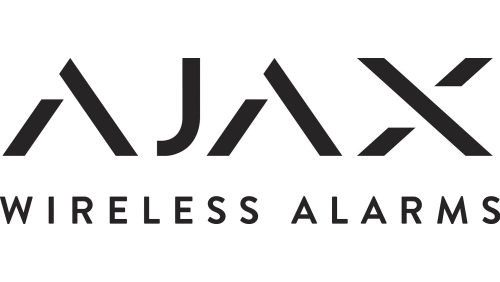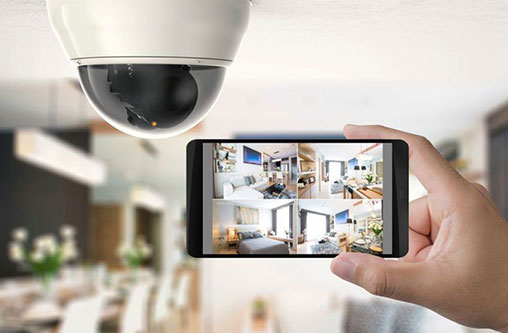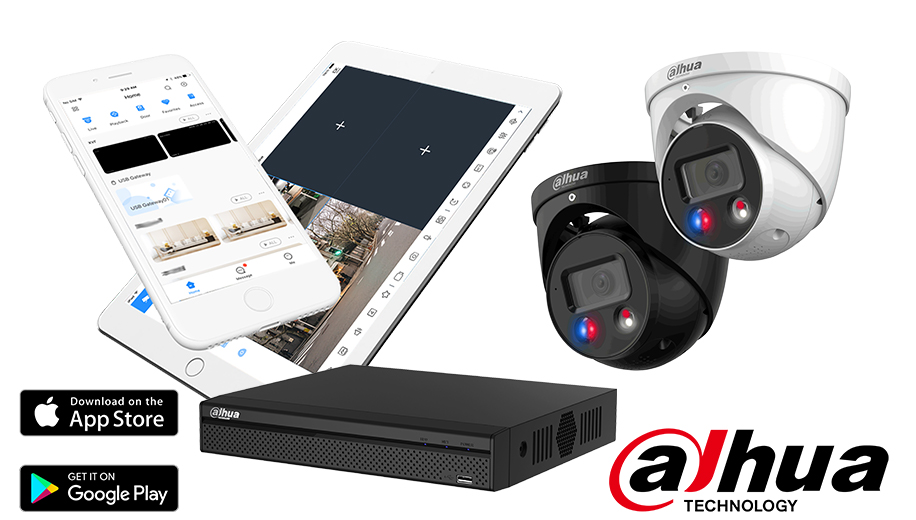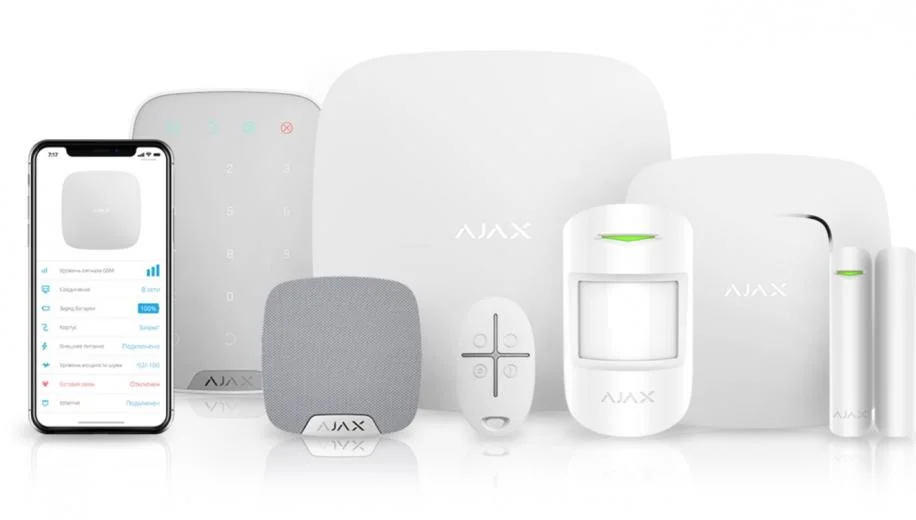Prompt & Professional Home Security Perth
Major Brand Suppliers






Perth’s Local Home Security Professionals
Connect and Protect are Perth’s leading home security providers. We find the best products in the market for reliability and control. You won’t find us selling multiple different brands or installing DIY Bunnings Swann systems.
We pride ourselves on providing the very best security solutions and CCTV systems with rigorous testing processes before we recommend and install a product. Connect with us to get protected today!


Dahua CCTV Systems
We provide advanced AI powered CCTV systems with real time notifications to your phone. CCTV is no longer a retrospective security solution. It has now become an active home security solution that can deter criminals and notify you immediately of any intruder in your home or business.
Ajax Alarm Systems
Ajax alarm systems are the future of alarm technology, previous alarm systems have been built on decades old security technology and only patched and added to for app control making them unreliable and buggy. Ajax has been engineered from the ground up with the latest technology and a user-friendly interface for the modern era.


Humm BNPL Payment Plans
Buy now and pay later with Humm. Payments plans from 12-18 months available on all our home security packages. No Interest Ever.
Our Accreditations




Why Choose Us

15+ Years of Experience
There is no problem we can't solve

Fixed pricing structure
No hidden costs, no extra changing

Fully Licensed
ACMA & Police Security Licensed Agent and Installer

Easy booking & install
We customise a security system on the day of installation

Fast Free Quotes
We provide fast & accurate quotes, with no hidden costs

Trusted Dahua Seller
The largest seller of Dahua products in WA
What Our Clients Say About Us
Frequently Asked Questions About Home Security in Perth
How much does an average home security system cost?
The cost of a security system in Perth can vary depending on several factors, including the type of system, the features and components included, the size of the property, and the level of customisation required. Security system prices might range from a few hundred dollars to several thousand dollars.
Here are some common types of security systems and their approximate price ranges:
Basic Alarm Systems: These typically include door and window sensors, a control panel, and an audible alarm. Prices for basic alarm systems can start from around $300 to $500.
Monitored Alarm Systems: These systems include a central monitoring service that alerts the authorities or a security company in case of a breach. Prices for monitored alarm systems can range from $500 to $1,500 or more, depending on the level of monitoring and additional features.
CCTV (Closed-Circuit Television) Systems: These systems use video surveillance cameras to monitor and record activity in and around your property. Prices for CCTV systems depend on the number of cameras, the quality of the cameras, and the level of recording and storage capabilities. Basic CCTV systems can start from around $500, while more advanced setups can cost several thousand dollars.
Smart Home Security Systems: These systems integrate security features with home automation technology, allowing you to control and monitor your security system remotely. Prices for smart home security systems can vary widely depending on the specific components and features, ranging from $500 to several thousand dollars.
How to choose the best home security system?
When choosing the best home security system in Perth, there are several factors to consider. Here are some guidelines to help you make an informed decision:
- Assess Your Security Needs: Start by evaluating your specific security requirements. Consider factors such as the size and layout of your property, entry points, desired level of monitoring, and any specific vulnerabilities you want to address.
- Research Security System Providers: Look for reputable security system providers in Perth. Read customer reviews, check their credentials, and ensure they have a good track record in the industry. Consider factors such as their experience, customer support, and the quality of their products and services.
- Determine System Type: Decide on the type of security system that suits your needs. Common options include alarm systems, CCTV systems, and smart home security systems. Evaluate the features and capabilities of each type and choose the one that aligns with your requirements.
- Consider Monitoring Options: Decide if you want a monitored security system or a self-monitored one. Monitored systems involve a professional monitoring service that alerts authorities or a security company in case of a breach, while self-monitored systems notify you directly through your smartphone or other devices.
- Evaluate Equipment Quality: Assess the quality and reliability of the security system’s components. Look for reputable brands known for producing reliable and durable equipment. Consider factors such as the range and sensitivity of sensors, video resolution for cameras, and the reliability of control panels.
- Check for Compatibility and Integration: If you have existing smart home devices or automation systems, ensure that the security system you choose is compatible and can integrate with them. This allows for seamless control and monitoring through a centralised platform.
- Evaluate Cost and Contracts: Consider the upfront cost, installation fees, and ongoing monitoring fees associated with the security system. Compare prices from different providers to ensure you’re getting a fair deal. Additionally, carefully review any contracts or service agreements before committing to a particular provider.
- Seek Professional Advice: Consult with security system professionals or request a consultation from providers. They can assess your property, discuss your needs, and recommend the most suitable system based on their expertise.
Are home security systems worth it?
Protection against Burglaries: A home security system acts as a deterrent to potential burglars. Visible security cameras, alarms, and signs indicating the presence of a security system can discourage intruders from targeting your home. In case of a break-in, the alarm will sound, alerting you, your neighbours, or a monitoring service, and potentially deterring the intruder or prompting a quicker response from law enforcement.
Peace of Mind: Knowing that your home is protected can provide peace of mind, especially when you’re away. Whether you’re at work, on vacation, or simply sleeping at night, a security system can help you feel more secure and reduce anxiety about potential threats.
Remote Monitoring: Many modern security systems have remote monitoring, allowing you to watch your house from anywhere using your smartphone or other devices. You can check live video feeds, receive alerts, and even control aspects of your security system remotely, providing an added layer of convenience and control.
Fire and Carbon Monoxide Detection: Some home security systems include smoke detectors and carbon monoxide sensors, which can provide early detection of these hazards. This can be crucial in protecting your home and your family from potential fires or dangerous gas leaks.
Insurance Benefits: Installing a home security system can potentially lead to lower insurance premiums. Many insurance companies offer discounts on homeowner’s insurance for properties equipped with security systems, as they reduce the risk of burglary and damage.
Integration with Smart Home Devices: Home security systems can often integrate with other smart home devices and automation systems. This allows you to control and monitor your security system alongside other functions such as lighting, thermostats, and door locks, enhancing the overall convenience and efficiency of your home.
What do I need to know before buying a security system?
#1 – Your Security Needs: Assess your specific security needs and priorities. Consider factors such as the size and layout of your property, the number of entry points, the level of monitoring desired, and any specific vulnerabilities or concerns you want to address.
#2 – Your Security System Options: Familiarise yourself with different types of security systems available, such as alarm systems, CCTV systems, and smart home security systems. Understand their features, components, and capabilities to determine which type suits your needs best.
#3 – Professional Installation vs. DIY: Decide whether you prefer a professionally installed security system or a do-it-yourself (DIY) option. Professionally installed systems may offer more comprehensive coverage and ensure proper placement and integration of components, while DIY systems can be more affordable and easier to install yourself.
#4 – Your Monitoring Options: Consider whether you want a monitored security system or a self-monitored one. Monitored systems involve a professional monitoring service that alerts authorities or a security company in case of a breach, while self-monitored systems notify you directly through your smartphone or other devices.
#5 – Equipment Quality: Research the quality and reliability of the security system’s components. Look for reputable brands known for producing reliable and durable equipment. Consider factors such as the range and sensitivity of sensors, video resolution for cameras, and the reliability of control panels.
#6 – Compatibility and Integration: If you have existing smart home devices or automation systems, ensure that the security system you choose is compatible and can integrate with them. This allows for seamless control and monitoring through a centralised platform.
#7 – Cost and Your Budget: Evaluate the cost of the security system, including upfront expenses, installation fees, and ongoing monitoring fees (if applicable). Set a budget and compare prices from different providers to find a system that offers the best value for your money.
#8 – Contracts and Agreements: Carefully review any contracts or service agreements before committing to a particular security system provider. Understand the terms, cancellation policies, and any additional fees or obligations involved.
#9 – Do Your Research and Read Reviews: Conduct thorough research on security system providers. Read customer reviews, check their credentials, and ensure they have a good track record in the industry. Look for providers that offer reliable customer support and have a positive reputation.
#10 – Seek Out Professional Advice: Consider seeking professional advice from security system experts or scheduling consultations with providers. They can assess your property, discuss your needs, and recommend the most suitable system based on their expertise.
Do home security systems use a lot of electricity?
Home security systems typically use a minimal amount of electricity. The power consumption of a security system depends on various factors, including the type and number of components installed. Here are a few crucial items to consider:
- Control Panel: The control panel, which acts as the central hub of the security system, is typically designed to operate efficiently and consume minimal power. It is usually connected to a power source and may have a backup battery to ensure uninterrupted operation in case of a power outage.
- Sensors: Door and window sensors, motion detectors, and other sensors in a security system are usually designed to operate on low power. These devices are often battery-powered and optimised to conserve energy, so their power consumption is generally minimal.
- Cameras: If your security system includes surveillance cameras, their power consumption may vary depending on factors such as the camera type, resolution, and recording settings. Some cameras are powered by batteries, while others may require a constant power source. Generally, modern security cameras are designed to be energy-efficient.
- Communication: Home security systems may use various communication methods, such as Wi-Fi, cellular networks, or landline connections, to transmit data and alerts. These communication methods have their own power requirements, but they typically consume relatively low power compared to other household devices.
Overall, while home security systems require some electricity to operate, their power consumption is generally minimal. They are designed to be energy-efficient, and the components used are optimised to conserve power.










